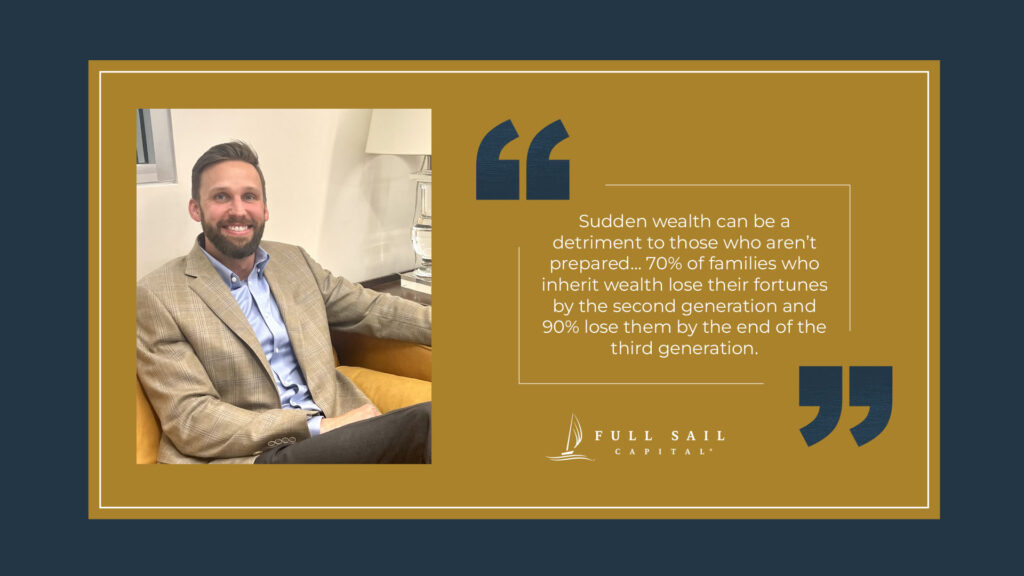Passing assets on to those we love can be a wonderful thing and a great accomplishment, knowing the financial resources we leave behind could have a positive or even a transformative impact on those we care about most.
But the process of wealth transfer should begin long before we pass away because planning and communication can help increase the likelihood of successful transitions.
While that may seem like common sense, recent studies show that 64% of wealthy individuals say they have not talked to their families about passing on their assets. And 97% of failed wealth transfers are attributed to either a breakdown in family communication and trust, inadequately prepared heirs or those who have no established family mission.
Without communication, it is easy to imagine the confusion, misunderstanding and emotional hurdles individuals could experience after receiving large inheritances, and little information to go with them.
Whether the estate is worth thousands of dollars or millions, we should start the conversations early and then keep them going over time. Communicating with our loved ones isn’t just about letting them know what to expect, it’s helping to prepare them for when that day comes.

Though it may not be a particularly sympathetic problem, the fact is sudden wealth can be a detriment to those who aren’t prepared. This unfortunate reality is reflected in an oft-cited study by Vic Preisser and Roy Williams, which found that that 70% of families who inherit wealth lose their fortunes by the second generation and 90% lose them by the end of the third generation.
But it doesn’t have to be that way. Estate plans do not necessarily guarantee against wealth destruction, but they can be helpful. Trusts have been employed by high-net-worth families for generations, but today, they are far more commonly used, and that’s a good thing. Through trusts, we can designate how we would like assets to be used and control when an heir receives an inheritance, which can increase the chance the assets will be properly managed.
Meanwhile, we should make it a priority to talk with our heirs about the hard work that was required to build or steward the family’s wealth and to pass along the financial knowledge necessary to keep it. If there’s a trust, explain how it’s set up and talk about its provisions and why they are there. Have a conversation about who the players are (like the trustee), their powers and the role they will play.
For some families, these conversations might be difficult. A lot of people don’t like to talk about money, much less mortality. Older generations may think the promise of inheritance will deplete motivation, and younger generations may fear bringing it up may cross the line of seeming entitled. The discussions can also take time, and in a busy world where family members are often spread across the country, the right moment can be hard to find.
But the price of procrastination can be high when heirs are left with too many questions, and not enough answers, leaving them vulnerable to poor financial decisions.
So, open the door and get the conversation started. Consider and share your visions of wealth preservation and generational enrichment. Talk about all the possibilities: education for the grandchildren, seed money for a new business, charitable giving and continued long-term investment. A simple phone call or a lunchtime chat might be all it takes to start a plan and build for the future.
